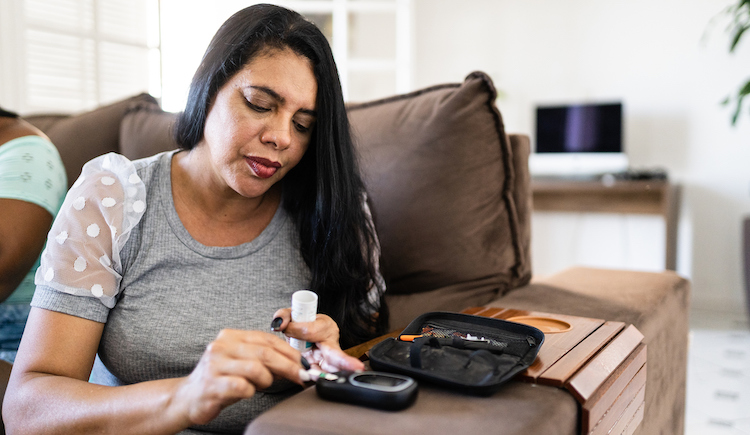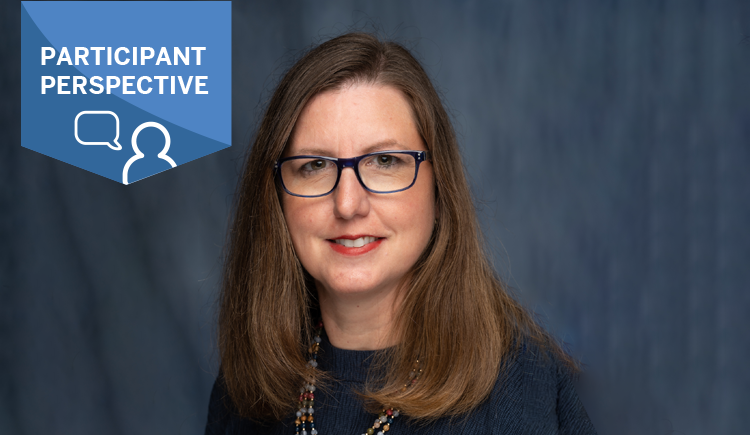
A. Enrique Caballero, MD, is an endocrinologist, clinical investigator, and educator focused on addressing health care disparities and improving access to quality care. Dr. Caballero is faculty director of International Innovation Programs in the Office for External Education at Harvard Medical School (HMS), faculty director of Diabetes Education in Postgraduate Medical Education, and associate professor of Medicine at Harvard Medical School. He also serves as director of Latino Diabetes Health at Brigham and Women’s Hospital.
Dr. Caballero is the recipient of the American Diabetes Association’s 2023 Outstanding Educator in Diabetes Award, which recognizes a distinguished health professional who has made outstanding educational efforts in the field of diabetes. A leader in diabetes education for more than two decades, Dr. Caballero works with national and international organizations to help further health equity, diversity, and inclusion.
“I’m honored to be the recipient of this prestigious award that recognizes my work in developing and implementing education programs for health care professionals and also for patients. Over the years, I’ve had a particular interest in the field of diabetes in underserved communities and racial and ethnic minorities. It’s extremely important to everybody to learn how we can improve the care of these groups.”
Dr. Caballero has directed nearly 100 unique courses as the inaugural director of International Professional Education at Joslin Diabetes Center and in his current roles at Harvard Medical School. Through a multidisciplinary and targeted education approach, including live and online activities, these courses have enhanced the knowledge, competence, and performance of health care professionals in the U.S. and over 100 countries throughout Latin America, Europe, Asia, and Africa.
As a prominent figure in the field of diabetes, Dr. Caballero has dedicated his work to helping underserved communities, particularly the Latino/Hispanic population. He has championed the development of comprehensive models of diabetes care that combine the latest scientific and technological advances with targeted interventions that consider patients’ social and cultural factors.
The HMS Continuing Education courses he directs, such as the annual Diabetes Update, Diabetes Comorbidities and Complications and Nutrition Management: Treating Cardiometabolic Disease, are designed to thoroughly discuss the latest scientific and technological advances as well as practical strategies to implement them in routine diabetes care.
Dr. Caballero emphasizes that to improve diabetes care nationally and globally, the so-called “triad in health care” needs to be carefully assessed with the goal of improving specific aspects in all three areas—health care providers, patients, and the health care system.
The Triad
Health care providers
“Health care providers usually focus on the ‘biomedical’ model and often lack the skills to address patients’ psychological, social, and cultural factors. They often struggle in getting closer to patients that have different cultures, backgrounds, or health beliefs. Effective and humane interaction with people from all cultures and backgrounds requires the development of skills that are not often acquired in traditional medical training programs. Communication and understanding need to happen more effectively for improved care.”
Patients
“There is a need for more accurate and scientifically based information on diabetes to be pushed out to the public. Studies have shown that people may not pay attention to or minimize the implications of diabetes, but this disease kills more people than HIV and cancer put together. It is important to reach various communities to educate them on what diabetes is and the complications and challenges that exist. If achieved, the chances of prevention and successful treatment increase. Ultimately, patients must be more engaged and take control of their own health.”
Health care system
“The health care system often fails at addressing the social determinants of health—the conditions in which people live, grow, and work—which can determine their health status. Most health care systems are reactive and focus on fixing acute problems. They are not usually designed to address chronic diseases properly. Incorporating the routine evaluation of social determinants of health and helping patients with more effective community-based programs and prevention strategies are required to improve diabetes care.”
Goals
Through his work in the Office for External Education, Dr. Caballero hopes the education that health care providers are receiving will help them to walk away with new ways to improve diabetes care for patients in the future.
“I trust that many of the participants in our programs have implemented the changes we have recommended. Diabetes is a disease that can be controlled. It can be prevented or delayed, and quality and longevity of life can improve significantly. I’m sure there are people all over the world that have been positively affected. I’m happy that the programs we’ve developed and some of the work I’ve done have benefited patients and their families.”
Based on his success in teaching comprehensive culturally and socially oriented diabetes care in these programs, Dr. Caballero believes that the best chance of effectively helping people living with diabetes treat this condition lies not only in the understanding of the latest scientific information but in staying vigilant in the fight against disparities and inequity in health care.


